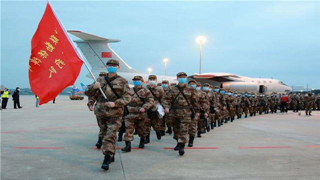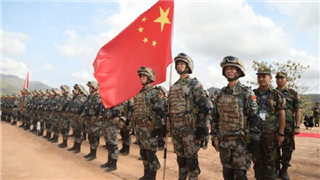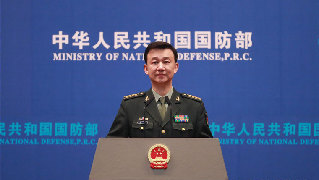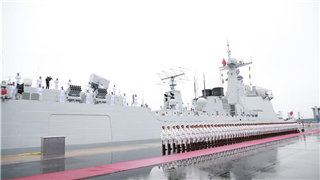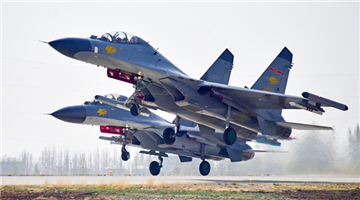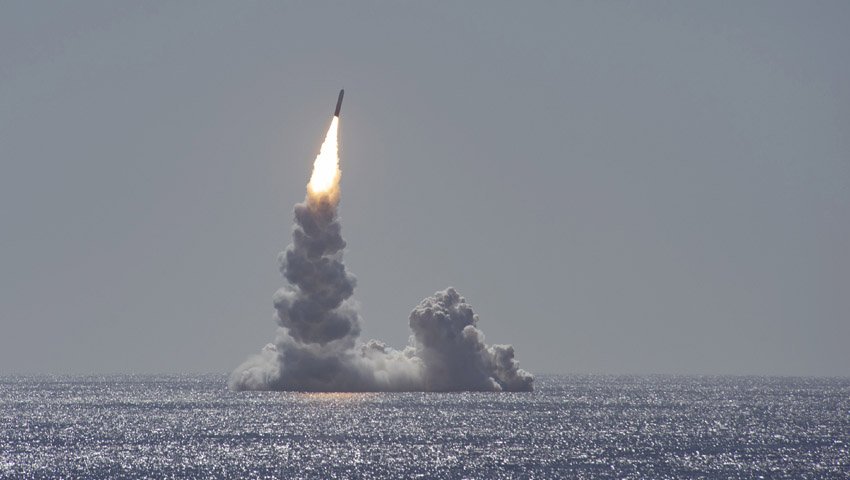
By Yi Kun
Just as the Trump administration opened fire on all fronts due to its inability to fight the COVID-19 pandemic, the arms control in China may become a new target of blame-shifting by the US.
The foreign ministers of the US and Russia held a phone call to discuss "what measures will be taken by the bilateral strategic security dialogue in consideration of the impact of the COVID-19 pandemic". Although it is called a bilateral dialogue, US Secretary of State Mike Pompeo mentioned: "Any future arms control talks must focus on an American proposal for a new arms control accord that includes Russia and China."
When reporting the news, Reuters said that "China, whose arsenal of an estimated 300 nuclear weapons is far smaller than those of Russia and the US, has rejected such talks."Then, why does the US force China? Reuters quoted the arms control expert as saying that this is the poison pill strategy of the Trump administration, which is intended to abolish the New Strategic Arms Reduction Treaty (START) and end restraints on US nuclear arms deployments.
The so-called poison pill is a tactic that public companies use to thwart hostile takeovers. Simply put, it is a ticking time bomb waiting to explode for the so-called acquirer. This strategy, which will only hurt others without necessarily benefiting oneself, has been applied creatively by the Trump administration to international relations.
Actually, this is not the first time that the Trump administration throws poison pills at China. Soon after Mr. Trump took office, he started renegotiating a new free trade agreement with Canada and Mexico called USMCA to replace the original North American Free Trade Agreement (NAFTA). The USMCA required that as long as either party reaches a free trade agreement with a "non-market economy country", the other two parties can break the contract and withdraw, which is an obvious poison pill clause against China. However, the Forbes website commented that compared with the original agreement, the economic impact of the new USMCA on US companies and laborers "has not progressed but has reversed." poison pill
Back in October 2018, after the US, Mexico, and Canada had just completed negotiations on the new USMCA, the US Secretary of Commerce Wilbur Ross (who publicly advocated that "the pandemic helps to accelerate the return of jobs to the US" at the beginning of the outbreak in China) threatened that a similar poison pill clause might be incorporated into the trade negotiations between the US and Japan, as well as the European Union, pressuring China to open the market. He also claimed that the poison pill clause is logical.
The US has extended the employment of poison pill strategy from the economic and trade field to the security field. If it is still said to be logical, it is nothing but a gangster logic.
On the one hand, the US unreasonably believes that China is ill-intentioned. The poison pill clause is supposed to target malicious acquirers, but China has never inherently harbored malicious intentions against any country, including the US. In terms of economy and trade, China, which has been labeled as a non-market economy country, is by far the largest trading partner of the US. In terms of security, China not only has a much smaller number of nuclear weapons than the US, but also promises not to use nuclear weapons first. China does not have a history of using nuclear weapons against other countries.
On the other hand, the US rudely denies the free will of other countries. According to the provisions of international law, contracting capacity is a manifestation of national sovereignty and cannot be arbitrarily deprived. Any country has the right to conclude treaties with other countries as long as they do not violate international law. The US obstructs the intended economic and trade cooperation with China by other countries. The US forcibly ties up the bilateral dialogue that China refuses to participate in. This all constitutes a violation of the sovereignty of other countries.
The poison pill seems to be aimed at China, but whether the global free trade system or the international nuclear non-proliferation mechanism, it would be likely to become a victim. What's more, there has never been a poison that is only effective against others. As long as the US has not completely divorced from the world, it will have to swallow the bitter fruit of the poison pill.
